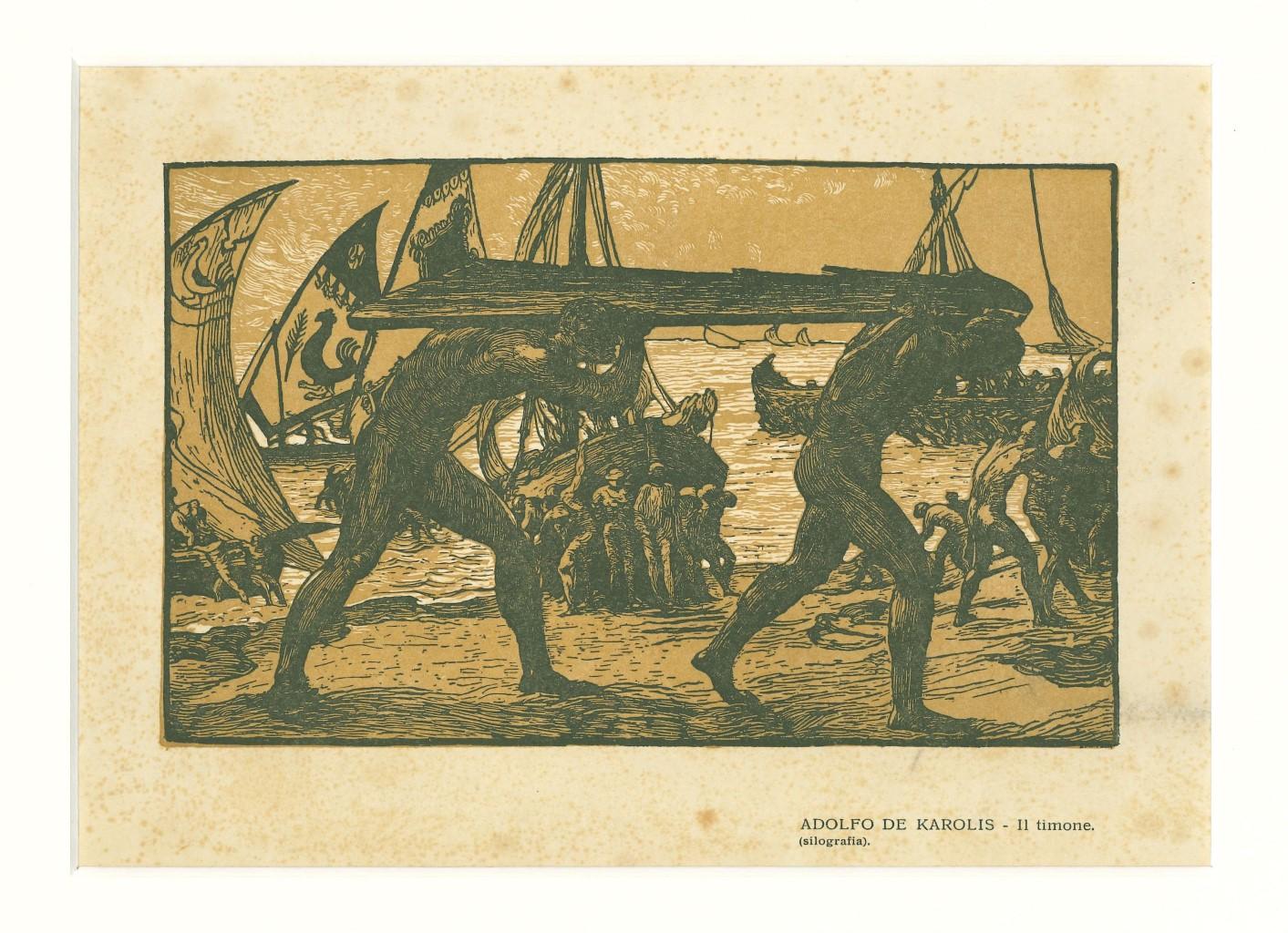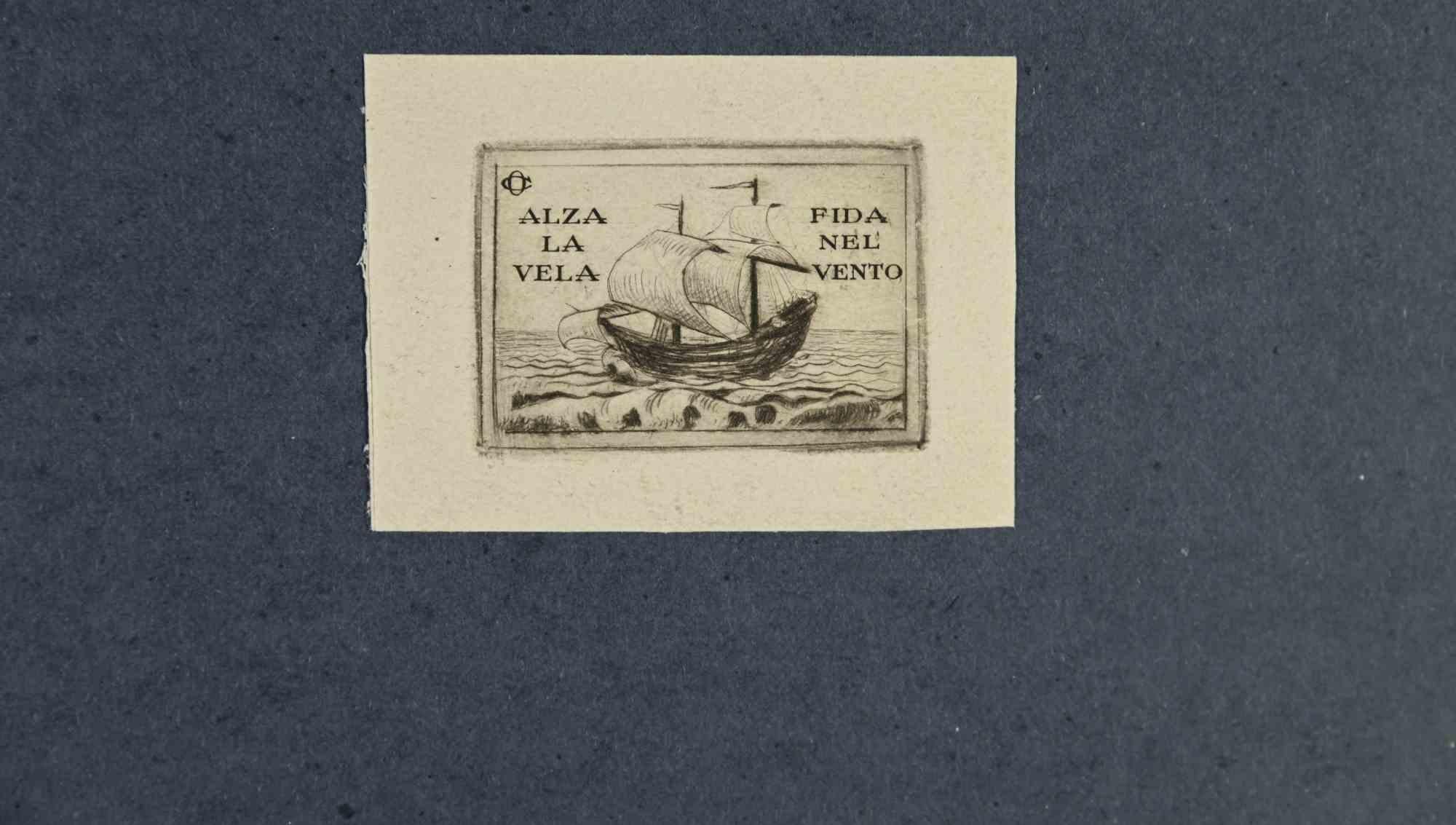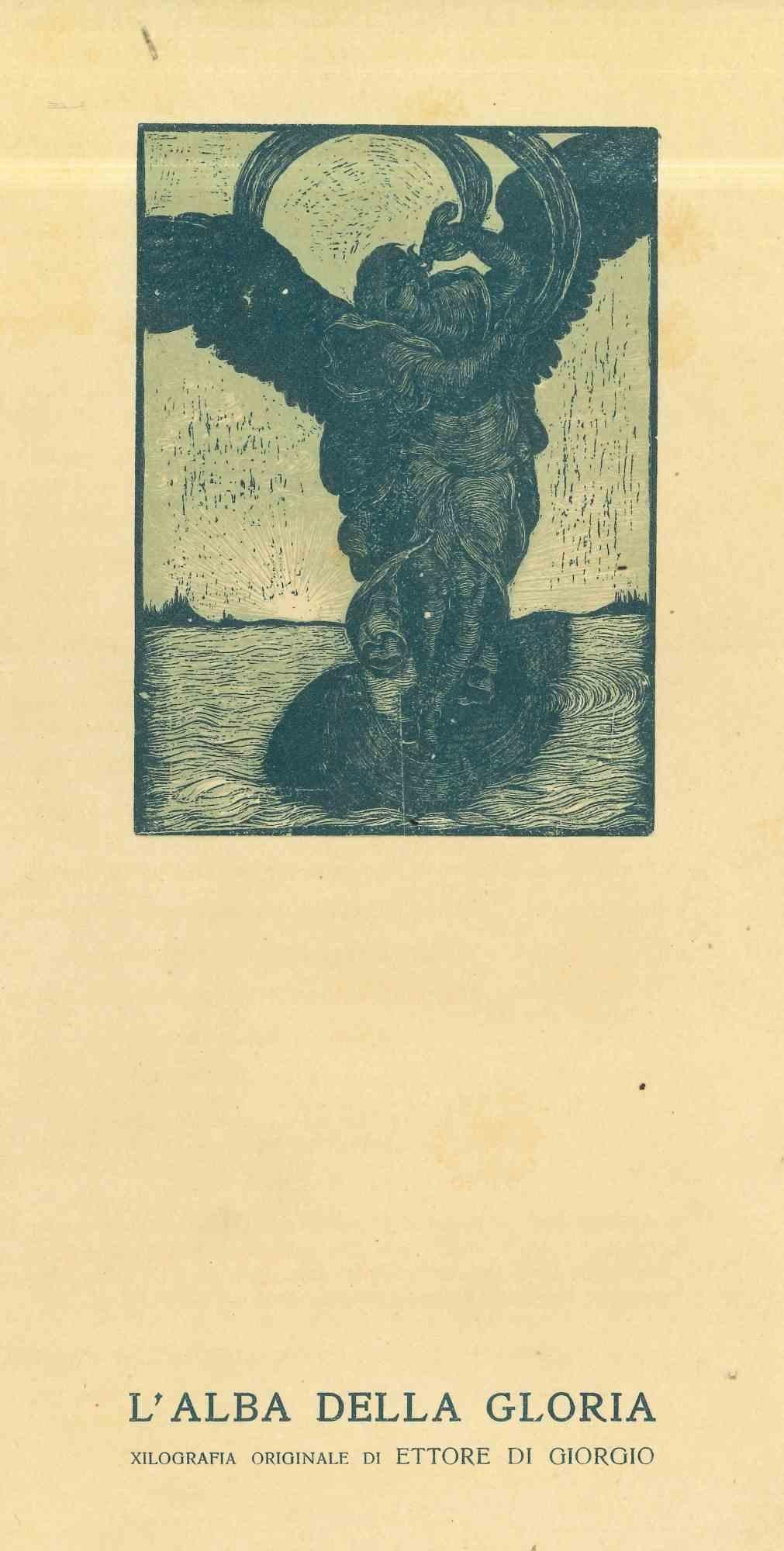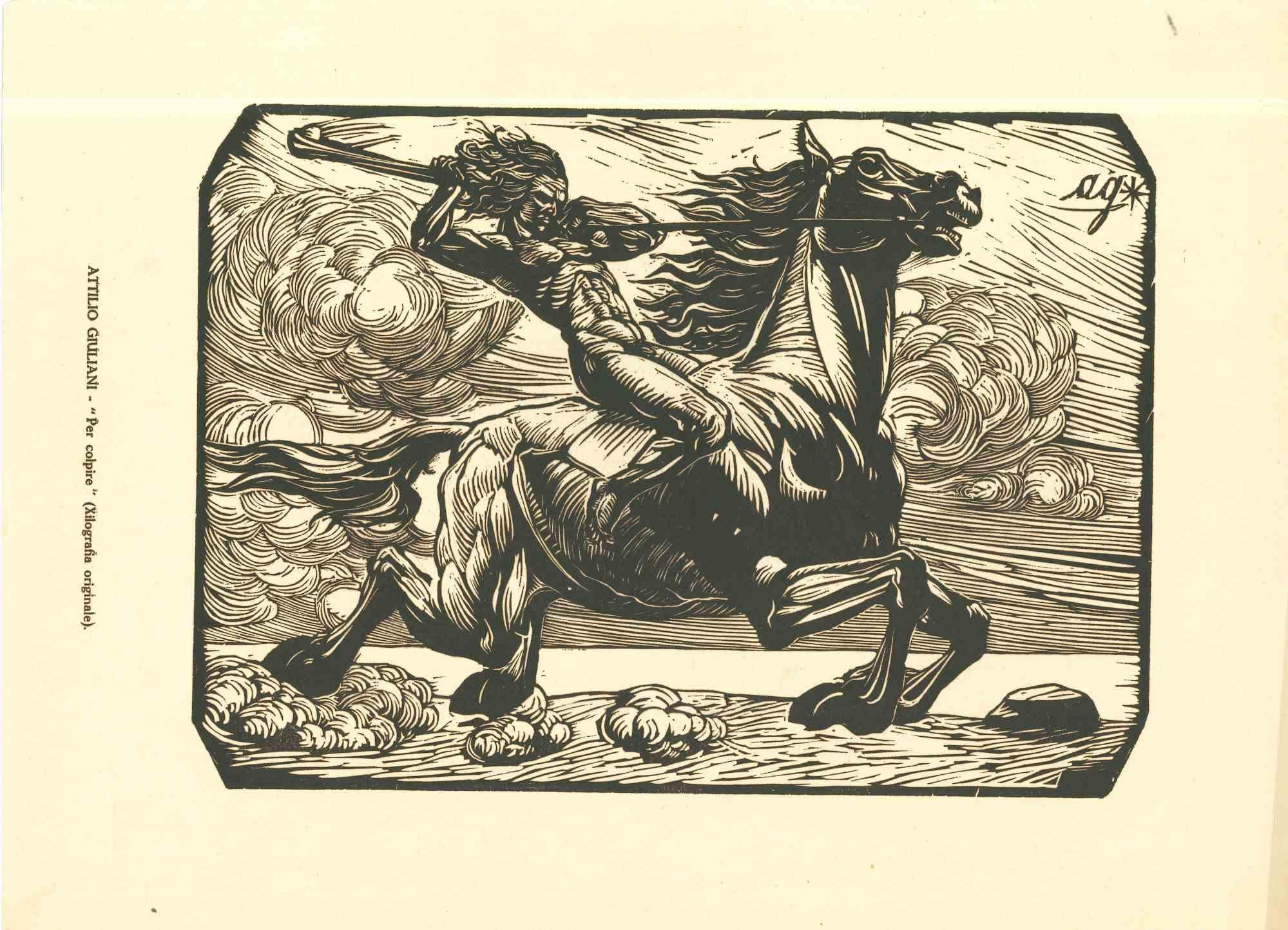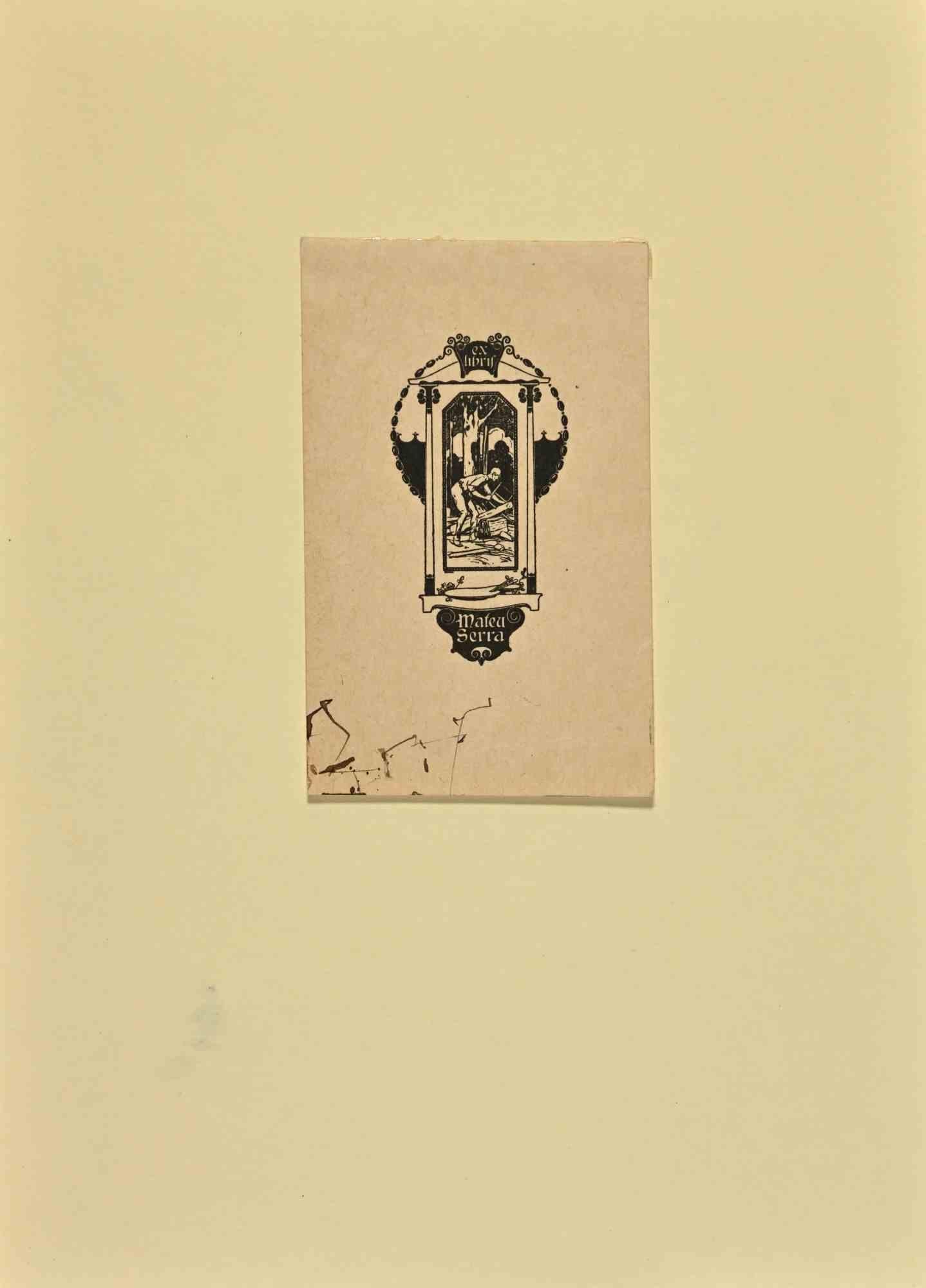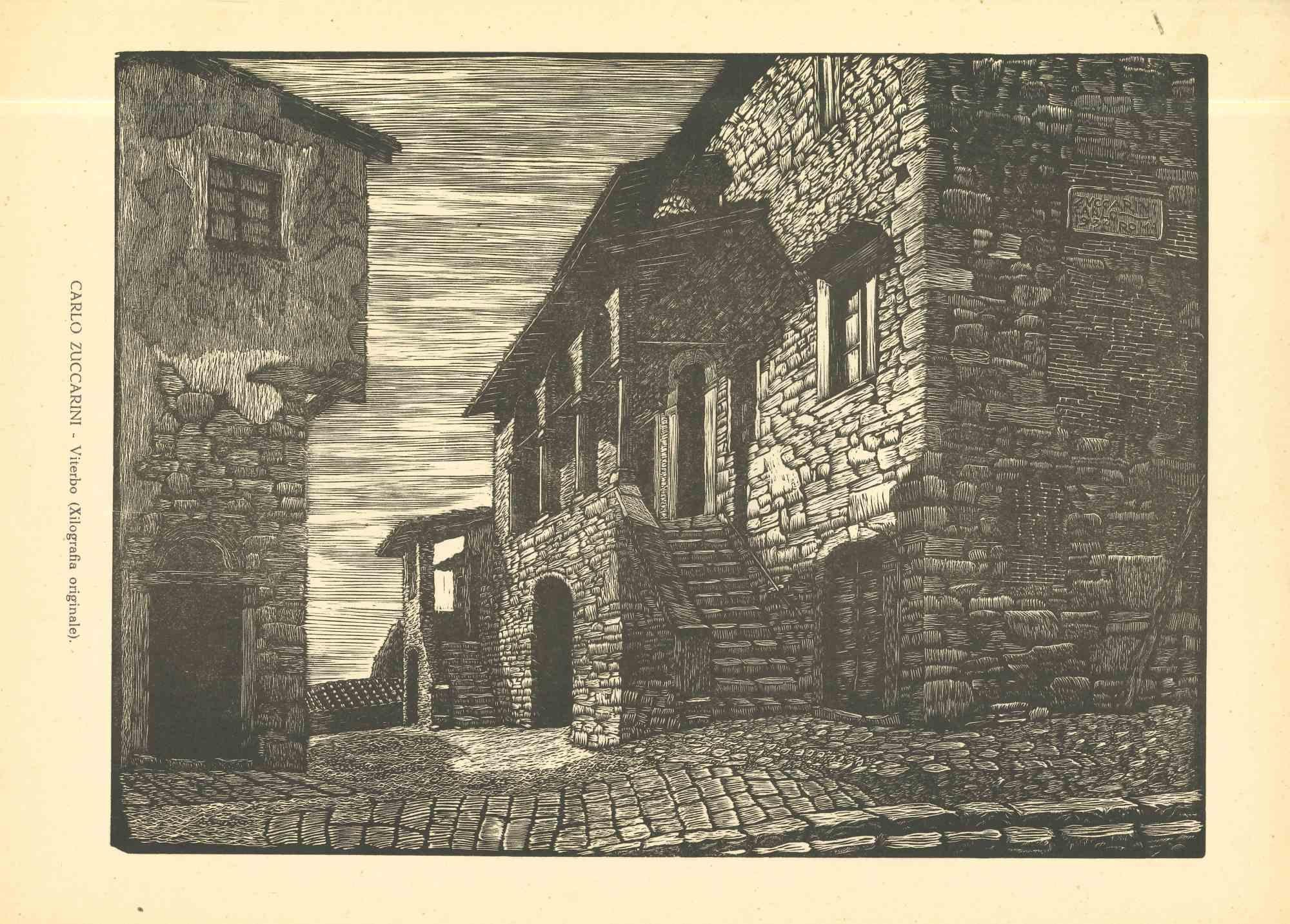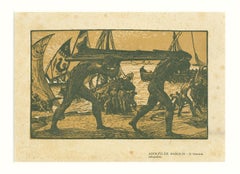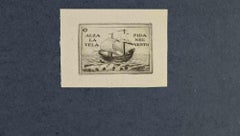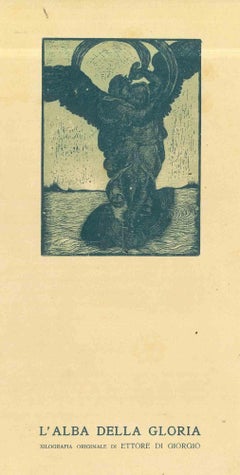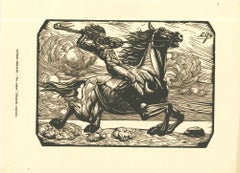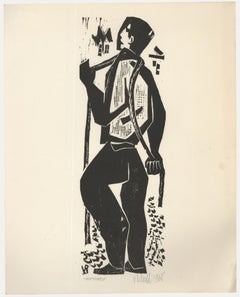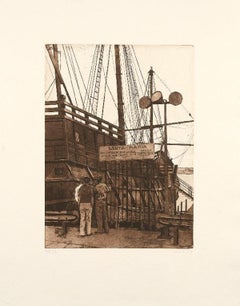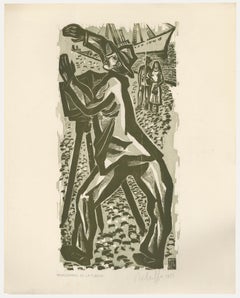Items Similar to The Saint - Original Woodcut by Bruno da Osimo - Early 20th Century
Want more images or videos?
Request additional images or videos from the seller
1 of 2
Bruno da OsimoThe Saint - Original Woodcut by Bruno da Osimo - Early 20th CenturyEarly 20th Century
Early 20th Century
$239.33
£178.75
€200
CA$329.72
A$359.34
CHF 190.28
MX$4,316
NOK 2,409.03
SEK 2,214.87
DKK 1,523.65
About the Item
The Saint is an Original Woodcut Print on paper realized by Bruno da Osimo in the Early 20th Century
Good Conditions.
The artwork is depicted through strong strokes in well-balanced composition.
- Creator:Bruno da Osimo (1888 - 1962)
- Creation Year:Early 20th Century
- Dimensions:Height: 3.55 in (9 cm)Width: 5.52 in (14 cm)Depth: 0.04 in (1 mm)
- Medium:
- Movement & Style:
- Period:
- Framing:Framing Options Available
- Condition:Insurance may be requested by customers as additional service, contact us for more information.
- Gallery Location:Roma, IT
- Reference Number:Seller: T-1280891stDibs: LU65039374092
About the Seller
4.9
Platinum Seller
Premium sellers with a 4.7+ rating and 24-hour response times
1stDibs seller since 2017
7,850 sales on 1stDibs
Typical response time: 1 hour
- ShippingRetrieving quote...Shipping from: Monaco, Monaco
- Return Policy
More From This Seller
View AllIl Timone - Woodcut by Adolfo De Karolis - Early 20th Century
Located in Roma, IT
Il Timone is an original woodcut on ivory-colored paper realized by Adolfo De Karolis.
The state of preservation is excellent.
Signed and titled, ...
Category
20th Century Art Nouveau Figurative Prints
Materials
Woodcut
Ex Libris - Alza la vela. Fida nel vento - Woodcut - Mid 20th Century
Located in Roma, IT
Ex Libris - Alza la vela. Fida nel vento is an Artwork realized in Mid 20th Century.
Etching print on ivory paper.
The work is...
Category
Mid-20th Century Modern Figurative Prints
Materials
Woodcut
$155 Sale Price
35% Off
Dawn of Glory - Woodcut by Ettore di Giorgio - Early 20th Century
Located in Roma, IT
Dawn of Glory is an Original Woodcut Print on paper realized by Ettore di Giorgio in the Early 20th Century
Good Conditions.
The artwork is depicted through strong strokes in well-...
Category
Early 20th Century Modern Figurative Prints
Materials
Woodcut
Colpire - Original Woodcut by Attilio Giuliani - Early 20th century
By Attilio Giuliani
Located in Roma, IT
Colpire is an original woodcut print by Attilio Giuliani in the early 20th Century.
Good conditions.
The artwork is depicted through strong strokes in a well-balanced composition
Category
20th Century Modern Figurative Prints
Materials
Woodcut
Ex Libris Matea Serra - Woodcut Print - Mid-20th Century
Located in Roma, IT
Ex Libris Matea Serra is an Artwork, woodcut print on ivory-colored paper. The work is glued on cardboard.
Total dimensions: 21 x 15.5 cm.
The artwork represents a daily scene, thr...
Category
Mid-20th Century Symbolist Figurative Prints
Materials
Woodcut
Viterbo - Original Woodcut by Carlo Zuccarini - Early 20th century
By Carlo Zuccarini
Located in Roma, IT
Viterbo is an original woodcut print realized by Carlo Zuccarini in the early 20th century.
The artwork is a glimpse of the Medieval architecture...
Category
Early 20th Century Modern Figurative Prints
Materials
Woodcut
You May Also Like
Victor Rebuffo (1903-1983) - Mid 20th Century Woodcut, Portuario
Located in Corsham, GB
An original woodcut print by the listed Italian-Argentinian artist Victor Luciano Rebuffo (1903-1983). Entitled 'Portuario'. The print depicts a figure, likely a dockworker. Monogram...
Category
20th Century Portrait Prints
Materials
Woodcut
Victor Rebuffo (1903-1983) - Mid 20th Century Woodcut, Riachuelo
Located in Corsham, GB
An original woodcut print by the listed Italian-Argentinian artist Victor Luciano Rebuffo (1903-1983). Entitled 'Riachuelo'. The print depicts a stylised waterfront scene with buildi...
Category
20th Century Landscape Prints
Materials
Woodcut
Amalia Avia Spanish Artist Original Hand Signed engraving, Carabel Santa María
Located in Miami, FL
Amalia Avia (Spain, 1939)
'Carabel Santa María', 1982
etching and aquatint on paper, edition of 6
16.6 x 12.3 in. (42 x 31 cm.)
Unframed, Hand-signed by author
Amalia Avia, Biograph...
Category
Late 20th Century Contemporary Prints and Multiples
Materials
Engraving, Etching, Aquatint
Victor Rebuffo (1903-1983) - Mid 20th Century Woodcut, Fotógrafo De La Ribera
Located in Corsham, GB
An original woodcut print by the listed Italian-Argentinian artist Victor Luciano Rebuffo (1903-1983). Entitled 'Fotografo De La Ribera' Photographer of the Ribera. Pencil signed, ti...
Category
20th Century Figurative Prints
Materials
Woodcut
1945 Brazilian Master, Art Deco Nudes Serigraph Woodcut Carnaval Bahia
By Odetto Guersoni
Located in Surfside, FL
Genre: Brazilian Art Deco, African Diaspora
Bahian Carnival
Subject: Abstract
Medium: Print
Surface: Paper
Country: Brazil
Dimensions of overall paper are listed.
This is from a series of work he did in the 1940's, we sold one called Ritmo Negro, they are about Afro-Brazilian jazz, dance and music.
Odetto Guersoni was born in the city of Jaboticabal, State of São Paulo, in 1924. From 1936 to 1941 he attended the Liceu de Artes de Ofícios in São Paulo, beginning his artistic career in 1945, when he exhibited paintings in the Hall of the Plastic Artists Union . Two years later he was part of the collective group of 19, alongside Aldemir, Charoux, Otavio Araújo, Grassmann, Maria Leontina and several other artists that time would make famous. He then practiced a figurative painting of accentuated Expressionist lauds, characterized by deformation and coloring, raw and Satirical- as, moreover, so many of his fellow exhibitors at the time. As a French government scholar, Odette Guerzoni went to Paris in 1947 and the following year took part in the Peintres et Graveurs Etrangers and Art Libre exhibitions. Student of engraving by Renê Cottet, gradually transformed this expressive medium into his favorite, to the detriment of painting, which he practically abandoned soon after.
In 1947, he participated in the 19 Painters exhibition at the Prestes Maia Gallery together with Lothar Charoux, Maria Leontina,Grassmann, Aldemir Martins, Luiz Sacilotto and hiró. Guersoni was awarded a scholarship by the French government, and traveled to Paris, where he began work in engraving. Back in Brazil, in 1951, he founded the Art Workshop, in São Paulo. In 1954, he returned to Europe for a year, financed by the International Labor Organization (ILO). In Geneva, he studied engraving with René Cottet (1902 - 1992) and worked in Stanley william Hayter's studio, Atelier 17, in Paris (1901 - 1988). From 1956 to 1957, he became director of the Union of Plastic Artists of São Paulo. From 1960, he attended, as a trainee, some art schools in the United States and Japan such as The New York School of Printing and Osaka University. In 1971, also in Japan, he attended the workshop of I. Jokuriti. Two years later, he was voted Best Recorder of the Year by the Paulista Association of Art Critics - APCA. He took part in a special room at the Ibero-American Biennial in Montevideo in 1983. The Pinacoteca do Estado de São Paulo - Pesp presents a retrospective of his work in 1994.
Odetto Guersoni explores the wide spectrum of possibilities of the engraving. In addition to using techniques such as metal etching, lithograph, serigraph, linocut and, especially, woodcut he developed, in the 1950s, the philigraphy, in which the forms he developed gained points of embroidery made by Bonadei (1906 - 1974) . And, in the 1960s, the plastigraphy, in which he makes engravings on pasty surfaces, obtained from gypsum or other soft material. In the 1970s, technical investigations were associated with pictographic, ideographic, archaic symbol searches, Brazilian cave paintings and plant forms. The drawings are reduced to stylized, geometric shapes and transformed into abstract graphic elements. The artist works with few matrices, which, organized in rectangles, squares or circles, become modules to be combined. Guersoni juxtaposes them, adds, changes colors, and thereby composes colorful mandalas and structural geometries. Based on concise compositions, it produces color vibrations through optical illusions. In many of his woodcut works of the 1980s he uses smooth wood, knives, saws, gouges, punches, avoiding the natural textures of wood. In printing, it leaves the vibrant color and employs dosed inks with colorless masses, obtaining transparencies by superpositions. New journeys of study and specialization in engraving techniques took him in 1954 to Switzerland, 1960 to the United States, and in 1966 to Germany and Austria. Today, after having performed more than 40 individuals including 16 abroad and having participated in more than 50 collectives in several countries, Guersoni is considered one of the most notable Brazilian engravers. Conquered awards in several shows.
CHRONOLOGY
Individual exhibitions
1946 - Sao Paulo SP - 10th Salon of the Artists' Union, at the Prestes Maia Gallery
1947 - São Paulo SP - 19 Painters, at the Prestes Maia Gallery
1948 - Paris France - Peintres et Graveurs Etrangers at the École des Beaux-Arts
1949 - São Paulo SP - 13th Salon of the Artists' Union, at the Prestes Maia Gallery
1951 - São Paulo SP - 1st Paulista Salon of Modern Art, at Prestes Maia Gallery - silver medal
1953 - São Paulo SP - 2nd International Biennial of São Paulo, at MAM / SP
1954 - São Paulo SP - 3rd Paulista Salon of Modern Art, in the Prestes Maia Gallery
1955 - Rio de Janeiro RJ - 4th National Salon of Modern Art
1955 - Salvador BA - 5th Baiano Salon of Fine Arts, in Belvedere da Sé - honorable mention
1962 - São Paulo SP - Leirner Prize for Contemporary Art at the Folha Art Gallery - 1st printing award
1963 - Curitiba PR - 20th Salão Paranaense de Belas Artes, at the Public Library of Paraná
1963 - Rio de Janeiro RJ - Individual, no MAM / RJ
1968 - Bradford England - First International Print Biennale
1970 - São Paulo SP - Antonio Henrique Amaral, Odetto Guersoni, Tomie Ohtake, Pedro Tort and Gerda Brentani, in the Alberto Bonfiglioli Gallery
1971 - São Paulo SP - 11th International Biennial of São Paulo, at the Biennial Foundation - acquisition award
1973 - Punta del Este Uruguay - 1st Engraving Meeting of the Prata Basin Countries - International Prize
1977 - São Paulo SP - The Groups: the 40's, at the Lasar Segall Museum
1982 - São Paulo SP - Ismenia Coaracy, Odetto Guersoni and Alice Brill...
Category
1940s Art Deco Nude Prints
Materials
Woodcut
Alberto Savinio (1891–1952) - Da la nostra anima - lithograph on paper - 1944
By Alberto Savinio
Located in Varese, IT
Lithograph on paper,
Edited in 1944
Limited edition of 300, numbered 90/300
Signed in pencil by artist in lower right corner
Paper size: 31 x 23 cm
Plate size: 24 x 16 cm
Very good...
Category
1940s Abstract Animal Prints
Materials
Lithograph
More Ways To Browse
Contortionist Vintage
Cowboy Bucking Horse
Cubism 1970
Denys Puech
Dior Casablanca
Dodo Print
Dog Dutch Painting
Drawing Of Owl
Eduardo Benito
English Huntsman Original Oil Painting
English Setter Art
Erte Dancer
Exile On Main Street
George Bishop
George Kilburne Goodwin
Golf Course Prints
Gordon Gilkey
Graham Smith
